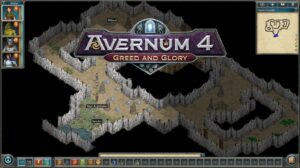A War With a Lose-Lose Outcome is on The Horizon


OPINION – A war is upon the gaming industry and when the dust is settled there will be no winner – only losing sides. This is not to say that this is an unnecessary conflict. On the contrary, this is needed now more than ever as consumers are fed up with being told that they are supposed to own nothing and be happy with it.
The Stop Killing Games (SKG) initiative spearheaded by American YouTuber Ross Scott calls for the gaming industry to introduce plans for how games are discontinued and has culminated in a petition in the EU with close to 1.4 million signatures and a successful campaign in the UK which closed with almost 190,000 signatures.
While the EU appeal could be open until the end of July, the UK parliament has two weeks to answer to the will of the people. The first step in the UK will be a debate in Westminster and then we’ll know what the next will be. It’s not quite the same on continental Europe where industry interest groups will do their best to make sure that no new legislation is passed.
Jump to:
Splitting The Gaming Community And Industry
What most people seem to have gotten wrong about the SKG initiative is that it’s meant to only apply to future games, not titles currently on the market. Twenty years from now, if Blizzard decides to discontinue support for Call of Duty, there will be an outcry – possibly – but no legal ramifications. At least not based on SKG.
Gamers, naturally, would love to be able to play their favorite games until their dying days. It’s equally understandable that studios and publishers would like to be able to turn off a game as soon as it’s no longer economically viable to support it.
Sure, this may seem greedy at first glance, but pause for a moment and try to look at it from the business perspective. Their argument is sound. However, it’s also a bit disrespectful towards the community that financed the game about to be sunsetted.
The Issue of Licensing And Ownership
I have rewound more cassette tapes with a pencil and blown into more cartridges than I can count. Concepts perhaps lost on younger gamers who grew up with playing games online. Back in the day you owned the games you bought. They were tangible. You could hold a physical version of it in your hands, store it on your bookshelf, and play whenever you wanted.
Still, it wasn’t ownership in the sense people tend to believe. Yes, the cartridge may have been mine, but the content on it wasn’t. The game and its characters still belonged to the company that made it. The licensing system has been more or less in effect since the mid-80s.
What’s changed are how the End User License Agreements (EULA) are worded. These days they make some seriously unreasonable demands, like mandating that players destroy their physical copy when the game is no longer supported by the company that made it. Others will say that they reserve the right to shut down access to the game with or without reason at their own discretion – neither sound very consumer friendly.
The First Casualty of War
According to Ancient Greek playwright Aeschylus: “In war, truth is the first casualty.” Like it or not, but a war is coming. It’s for the future of how studios and publishers factor in the full life (and death) cycle of games they produce. Before the dust settles there will be wild things said from both sides of the aisle.
Neither side will be forgiving. Neither side will take prisoners. There will only be people shunned for expressing their opinions. The first casualty has already been noted – Jason “Thor” Hall aka PirateSoftware. He mischaracterized SKG and sided with the industry. As a result he was mercilessly hounded online and lost more than 100,000 subscribers to his YouTube channel.
He’s as much entitled to his opinion as the people who left his channel are to disagree with him. Sadly, he’s not likely to be the only one to lose their livelihood during this war, which is only about to get started.
There Will be Resentment No Matter What
If we are to learn from history, this will be a war ending with a Pyrrhic victory for either side. If the gamers get what they want, the industry will be forced to adapt and gamers will have to suffer consequences deemed “necessary” by the studios and publishers. If you think $80 is expensive for a game today, wait until you have to pay double that so “costs” for keeping the game “alive” beyond it stopped making money can be recuperated.
You can count on advocacy groups in the UK and EU to spend millions in order to lock down the votes they need to squash whatever regulations could go against the interests of the game makers. And when they win, gamers will protest with their wallets until, eventually, they cave and return to buying games for $80. And in the long run, the resentment will never go away.
Nobody. Wins.

















